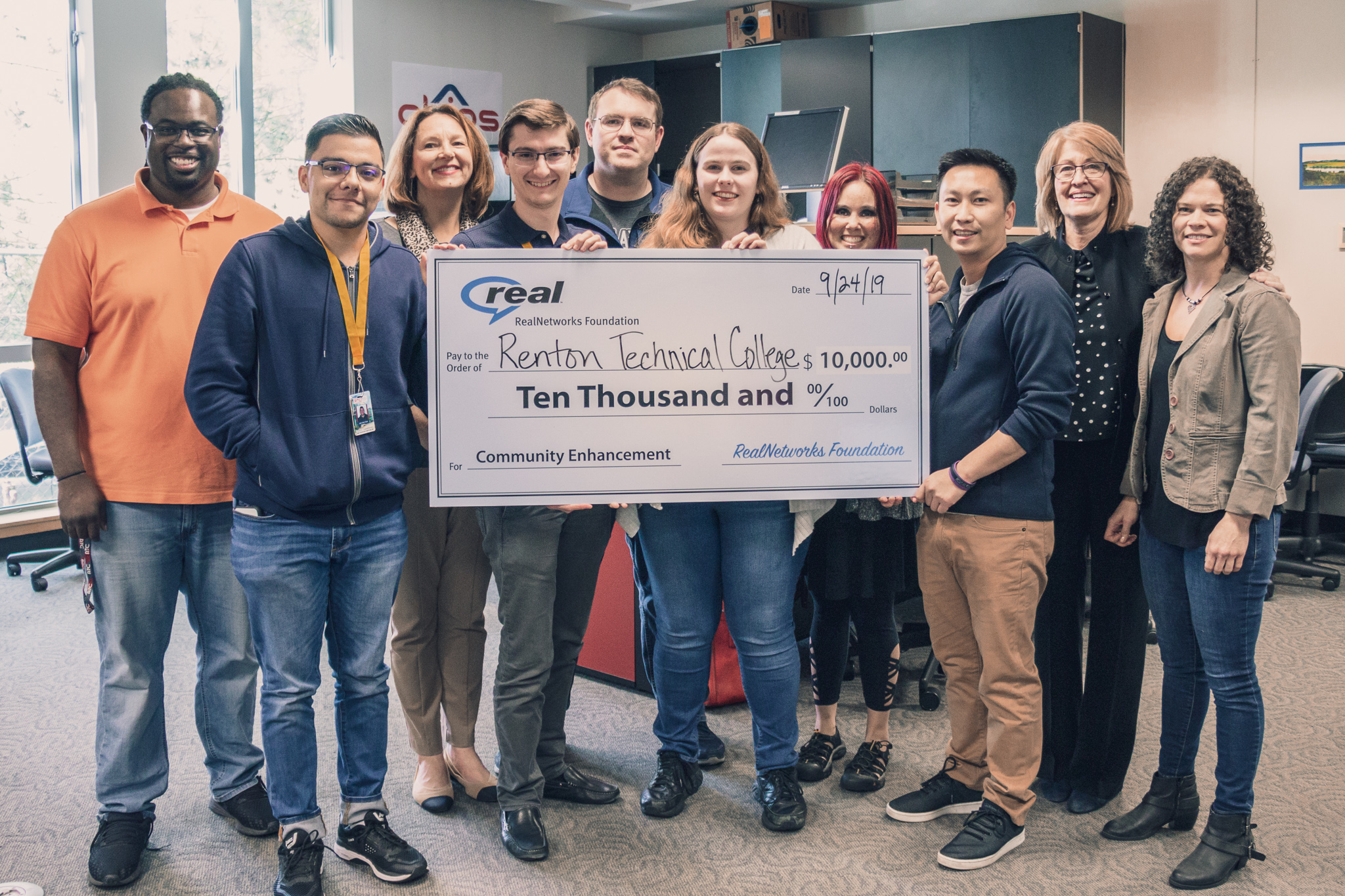Renton Technical College’s student-run computer help program will soon expand and start a new laptop loan program thanks to a donation from the RealNetworks Foundation and matching gifts.
CHIPS (Computer Help & Information Protection Support) received a $10,000 check from RealNetworks Foundation Director Kathryn Shields the second week of fall quarter. It’s the first time the RealNetworks Foundation has awarded a grant to the college.
The grants are competitive and by invitation only. Shields said grant evaluators were roundly impressed by and the College’s commitment to student growth and leadership during a site visit and the grant review process.
“This is something we really want to invest in,” Shields said. “You are doing wonderful work with respect to computer science, peer mentoring, and leadership. It’s essential to be able to learn and do classwork on a computer.”
Shields, who was a first-generation college student herself, takes RTC’s values of equity and open access to education to heart.
“Anything you can do to help students like me, I really appreciate,” she said.
The RTC Foundation and Associated Student Government will match the RealNetworks Foundation grant and provide the seed funding to launch the laptop loan program. CHIPS offers computer repair, software upgrades, hardware replacement and other services. CHIPS Team Lead Katie Reynolds said she hopes to make laptops available starting in winter quarter to loan to students who cannot afford their own.
“We’re trying to expand CHIPs as a technology resource,” Reynolds said. “Our main goal is to keep computers working as long as possible so students don’t have to buy anything. But if they can’t afford one, we want to provide that option.”
She credited former tutor and CHIPs cofounder Don Hawkins for the growth of CHIPS and the strong grant application he helped write. Hawkins recently left the college to earn his bachelor’s degree in economics from Harvard.
The RealNetworks Foundation provides grants for a variety of programs. It gives priority consideration to STEM (science, technology, engineering and math) programs and those that serve to diversify the tech sector by helping historically underrepresented people qualify for tech jobs. This includes programs that are geared toward helping women and girls, people from underrepresented ethnic communities, low-income people and those who will be the first in their family to attend college pursue degrees and training in tech fields such as computer science and software engineering.
